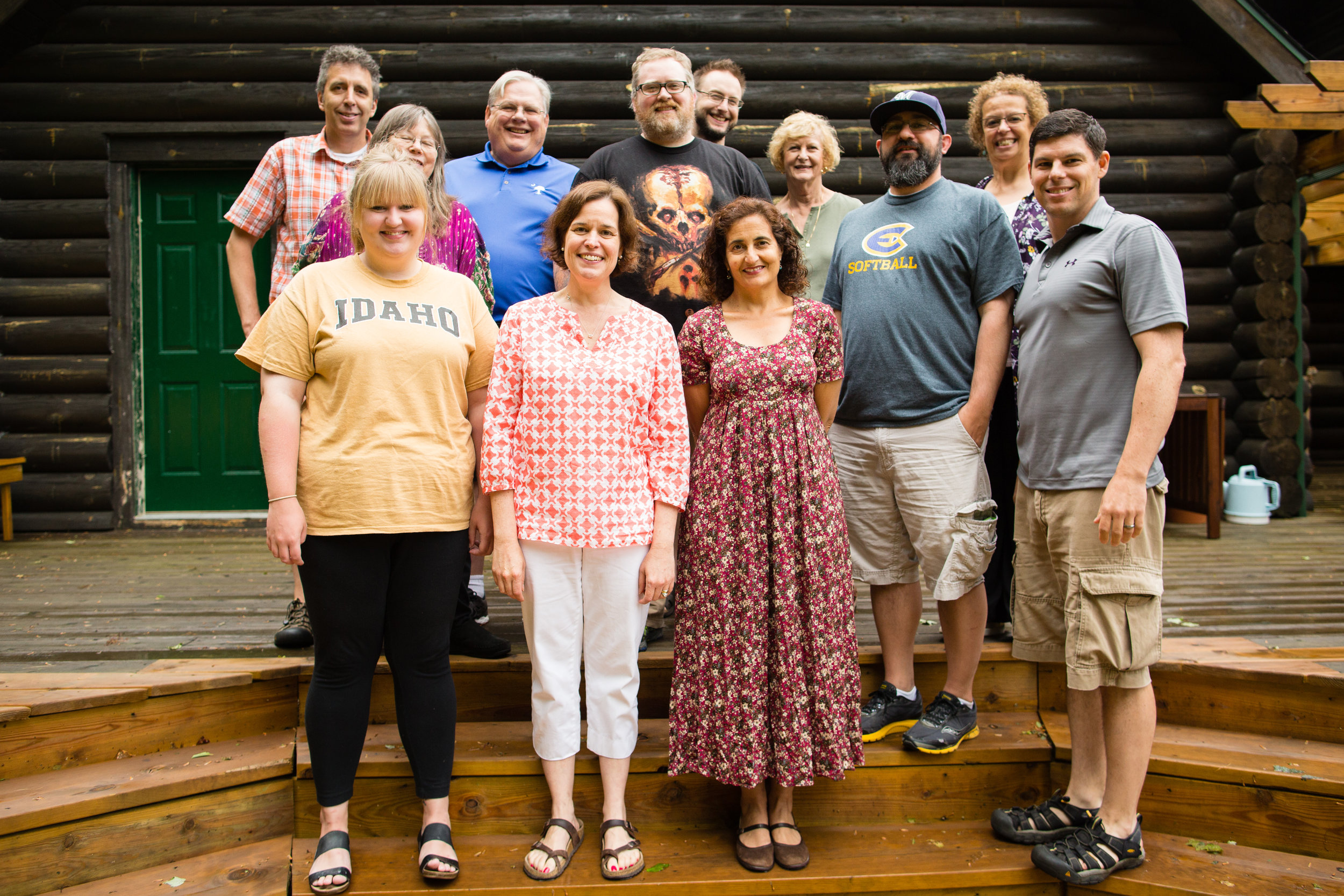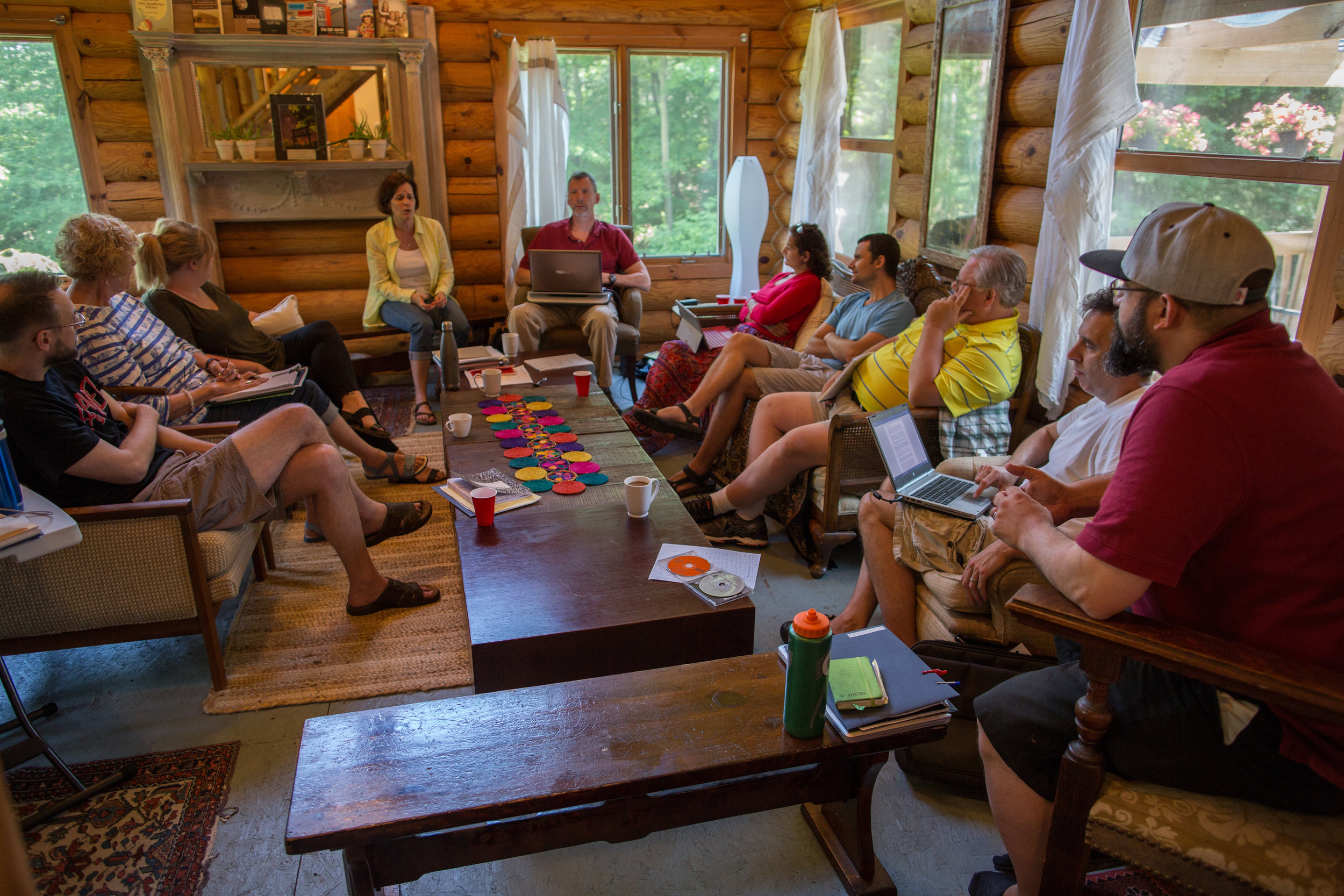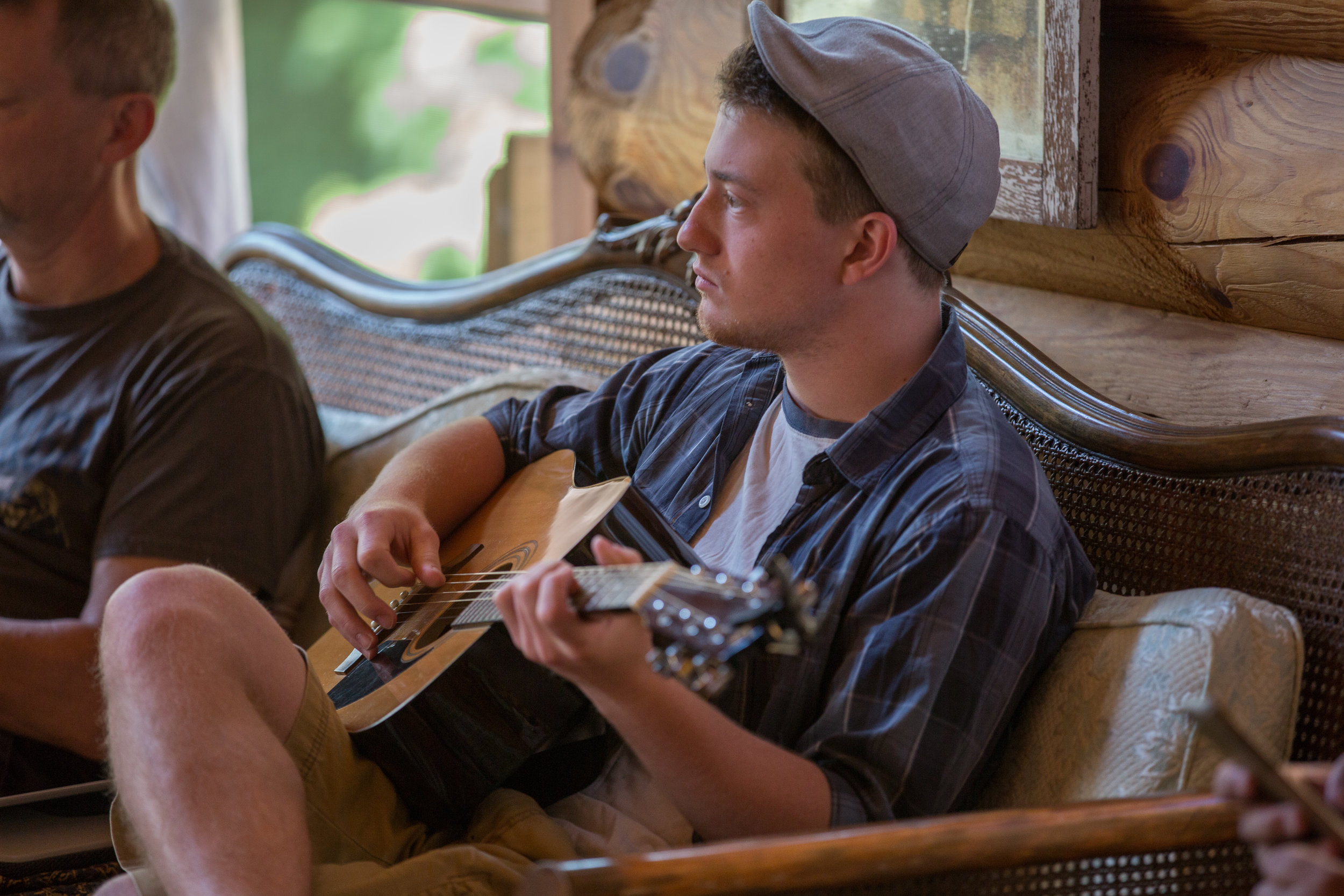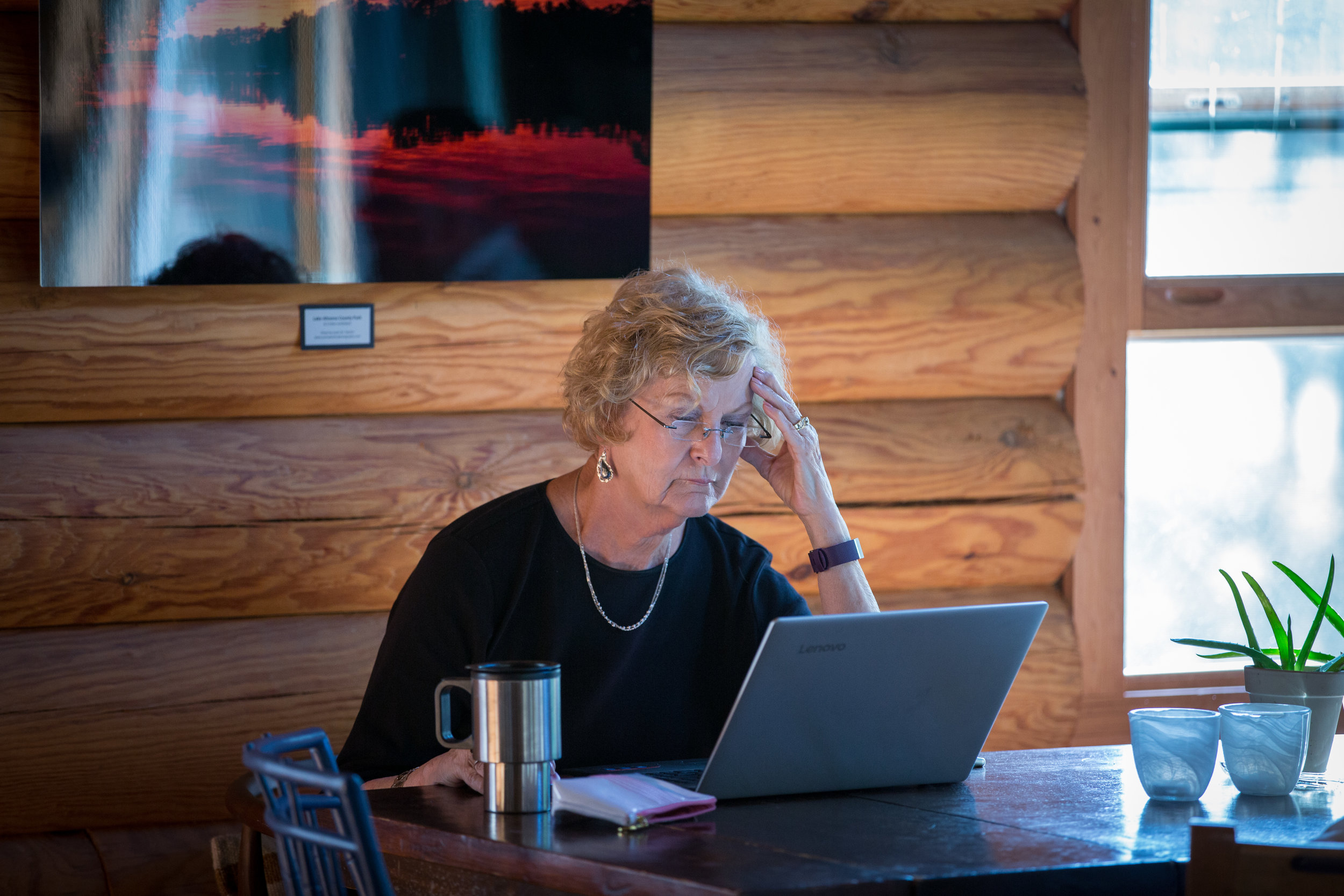photo courtesy Justin Patchin
by Geoff Carter
“You’re cheating! I smell lighter fluid.”
Guild Director BJ Hollars and I heard this from the Cirenaica lodge last Friday evening as we started the campfire…with a little help. In our defense it had rained the night before, so we could use a little help.
It was the second night of Nickolas Butler’s Fiction Residency at Cirenaica, and after a long day of tackling projects, workshopping, and gorging on succulent meals, a fire is just what we needed.
“Lighter fluid?” I lied. “I don’t know what you’re talking about.”
Fiction is a lie; this was Nickolas Butler’s most important lesson for the group. A lie that, while holding emotional truths, is still fabricated from our minds. Butler used the analogy of a police interrogation: if a crime was committed and an alibi was needed, we give our stories to the police; they, like the reader, will spot holes in the story, and with too many holes the story will fall apart. As writers, we need to fill the holes to keep the lie intact, and the story fulfilling.
All weekend long, the ten participants worked in a circle with Butler, perfecting their lies. Each writer had previously submitted a story or excerpt earlier in the summer for the other writers, and by Friday afternoon, they hit the workshops hard, returning to a circle to discuss the pieces over the next days. It was hard, it was taxing, and it was rewarding. Under Butler’s guidance everyone was constantly engaged and learning, even when their piece wasn’t being discussed.
photo courtesy Geoff Carter
The purpose of the workshops was to give each writer in-depth, genuine, and meaningful feedback which they could incorporate into their work. No individual story was perfect, but the workshops helped pushed each story closer toward perfection.
When the workshops were not in session, we still found ourselves in circles. In the lodge living room, on the back porch, or around a roaring fire. Even a loud circle in the kitchen around a midnight hummus snack. Within the circles we conversed about our craft. We talked over House Chef Brent Halverson’s glorious meals, and we talked when we should have been writing. Wherever we wandered on the green grounds, we were always together in this writing world.
And we congregated around those early evening fires that turned into late-night embers, breaking the wilderness slumber with our boisterous laughter and personal stories. The smoke drew our eyes to the stars while I plucked away on the guitar.
Our stories and our time here drew us into tighter circles. There were never enough chairs.
Writing is often a lonely craft. Solitary on laptops and notebooks with a single pen. Here at Cirenaica, writing is never lonely. With plans already made to meet in the future, I feel like writing, from now on, will be solitary but never lonely.
We could all use some help sometimes. So, Saturday night, after a stirring and invigorating reading, Butler helped BJ and I start that night’s bonfire without using lighter fluid, just like he helped us all work together, write together, and create together.
photo courtesy Justin Patchin















